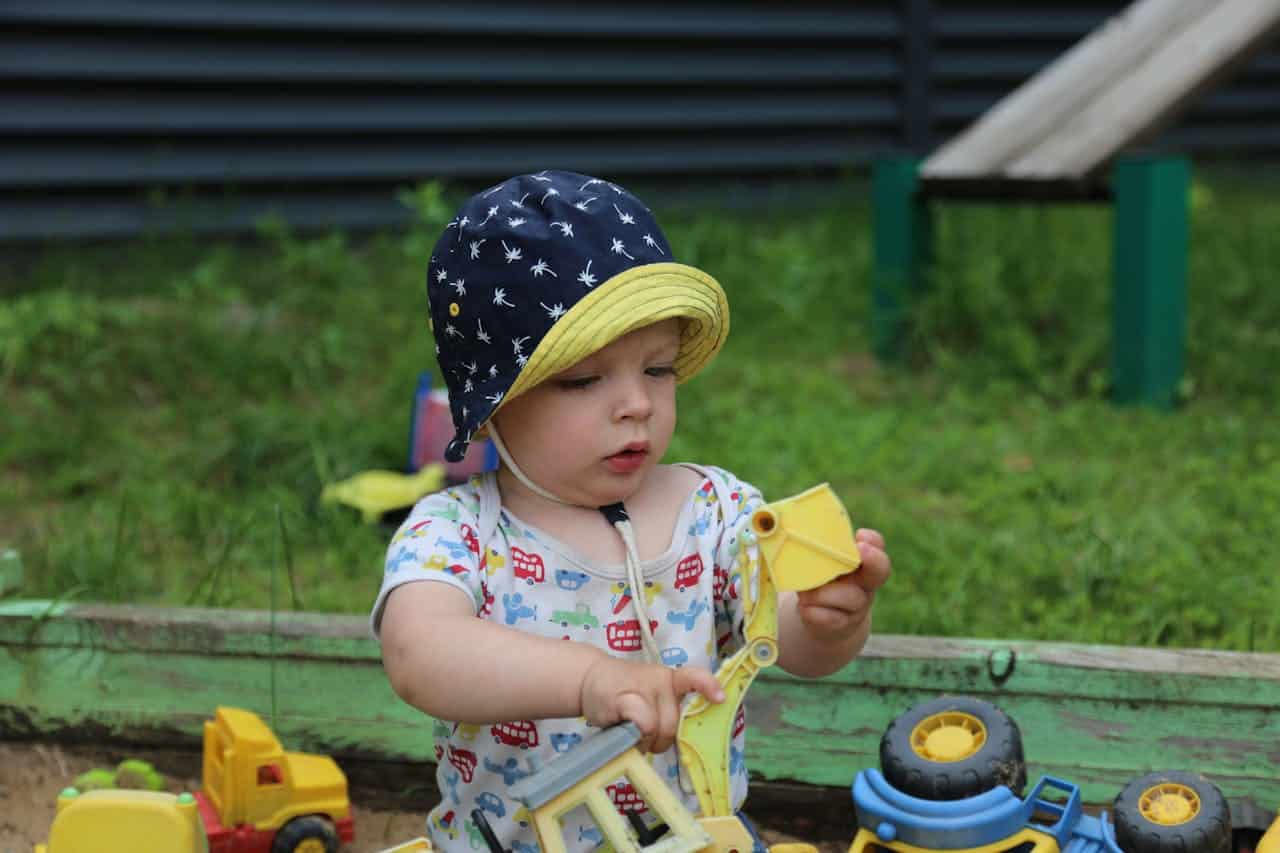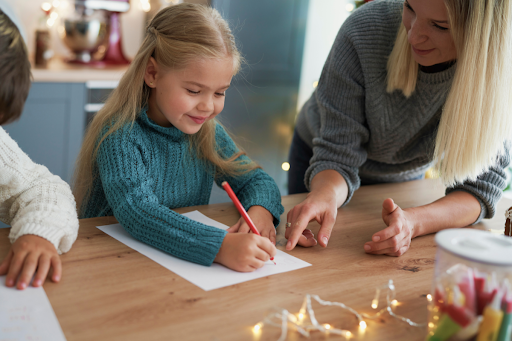
The Importance Of Literacy Skills In Early Childhood Development
By developing strong literacy skills early on, children are better equipped to communicate effectively, think critically, and succeed academically. Plus, it’s never too early to start developing a love of reading and learning! We’ve put together fun and engaging at-home literacy activities for kids to try with your little ones.
The importance of learning literacy in early childhood
Literacy skills help children to communicate, express themselves, and understand the world around them.
Key Components of Kids Literacy Skills
There are four core components to literacy skills:
- Reading comprehension: Understanding written texts
- Writing: Communicating thoughts and ideas through written words
- Listening: Interpreting spoken language and understanding its meaning
- Talking: Expressing thoughts and ideas through speech
How literacy skills shape early childhood growth
Promoting literacy for kids is essential for acquiring knowledge, nurturing critical thinking, encouraging emotional connections and boosting creativity.
Cognitive Development
Language and Communication Skills
As your child learns to read and write, they expand their vocabulary, allowing them to express themselves more effectively and understand the thoughts and feelings of others.
Critical Thinking and Problem Solving
Skills in literacy also help kids to think critically and solve problems. Children are exposed to new ideas, perspectives, and information through books and reading. This allows them to better analyse situations, draw connections, and make informed decisions.
Emotional and social development
Emotional literacy for kids is the ability to recognise, understand, and express emotions effectively. It involves being able to identify and label one’s feelings, as well as the emotions of others.
Children develop the skills to manage and regulate emotions, build empathy, and engage in appropriate social interactions.
Additionally, emotional literacy helps children build healthy relationships and constructively handle challenging situations.
Academic success and future opportunities
A solid foundation in literacy skills in early childhood is vital for academic success and future opportunities. Reading, writing, and communication proficiency open doors to advanced learning, higher education, and rewarding career paths.
How parents can help their child develop literacy skills
Reading out loud and shared reading
Notably, reading aloud helps your child develop listening skills, expands their vocabulary, and stimulates their imagination. Shared reading experiences, such as taking turns reading aloud or discussing the story, further enhance their literacy development.
Encouraging writing and drawing
You can also encourage your young learner to express themselves through writing and drawing. Providing opportunities for children to scribble, write letters or words, and create drawings supports the development of fine motor skills and fosters creativity.

Literacy skills: building vocabulary and language
Engage your child in conversation. Ask open-ended questions and introduce new words to help build their vocabulary and language skills. Teaching them songs, rhymes, and stories supports their overall literacy development.
Simple literacy activities for kids to do at home
We’ve put together a list of easy literacy games for kids and activities you can play with your child at home.
Story Chain
Gather a group of children in a circle. Start a story by saying a sentence or two, such as, “Once upon a time, in a magical forest, there lived a friendly dragon.”
The next child in the circle must continue the story by adding a sentence or two. The story continues around the circle, with each child contributing a sentence. This game encourages creativity, listening skills, and storytelling abilities.
Sight Word Treasure Hunt
- Write sight words (commonly used words that children should recognise by sight) on small cards or sticky notes.
- Hide them around the room or outdoor play area.
- Provide each child with a list of the sight words they need to find. The children must search for hidden words and collect them.
Once they find all the words on their list, they can read them aloud to an adult or older child. This game helps children practise their sight word recognition and reading skills.
Alphabet Chart
Our Alphabet Chart is a colourful animal alphabet chart that helps children learn the letters of the alphabet in both upper and lowercase, connect letters with pictures and sounds, recognize 22 animal words, trace letters, and improve literacy skills.
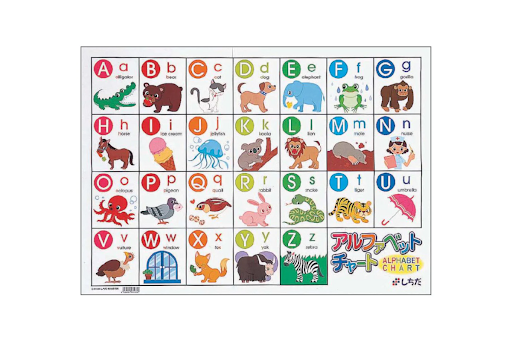
Speak Up Stories
Speak Up Stories helps children improve their English reading comprehension and conversation abilities by reciting picture books with frequently-used phrases and listening to double and quad-speed versions, featuring books with 8 pages that are easy to understand.
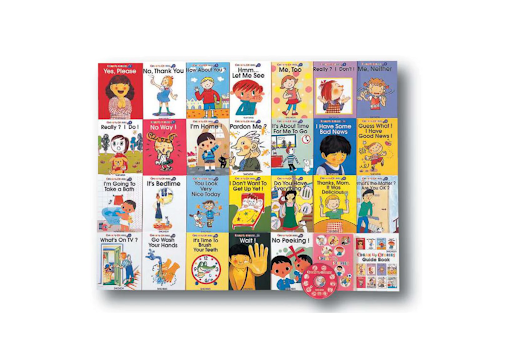
Good Child’s English Time – Tiny Songs
This CD features class favourite songs from Shichida that help children naturally master grammar, expressions, pronunciation, and intonation, increase vocabulary, and stimulate the right brain’s memory circuits, with songs modelled on everyday language and common situations. Good Child’s English Time CDs are available in volumes 1, 2 and 3.
Rhyme Time
This activity focuses on developing children’s phonemic awareness by recognising rhyming words.
Start by saying a word, such as “cat,” and ask the children to come up with words that rhyme with it, like “bat,” “rat,” or “mat.”
You can also use rhyming books, songs, or poems to engage children in recognising and producing rhyming words.
Word Ladder
Write a four-letter word at the top of a piece of paper or whiteboard and a different four-letter word at the bottom.
The goal is to change the top word into the bottom word by altering one letter at a time, with each change resulting in a valid word.
For example, to change “rain” to “pour,” the ladder could be: rain, pain, pair, pour. This activity helps children practise spelling, word recognition, and critical thinking skills.
Emotional literacy activities for children
Emotion Charades
Children act out emotions without words. They pick an emotion card and perform it for others to guess, helping them recognise emotions and practice empathy.
Feelings Journal
Encourage children to write or draw about their emotions daily, exploring triggers and responses. This activity develops self-awareness, emotional expression, and reflection skills.
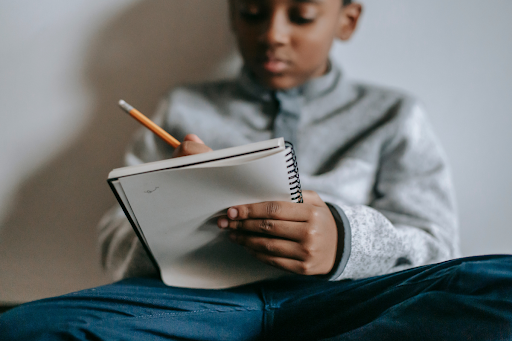
Remember to adjust the difficulty level of the activities according to the age and skill level of the children participating.
Discover more literacy activities for kids in our online store.
Literacy Skills with Shichida Australia Early Learning Program
We help younger learners practise phonics, explore alphabet letters, read, and make up stories while building an extensive vocabulary using flashcards, songs, and a variety of hands-on activities. Find out more about our literacy program for young learners today.


